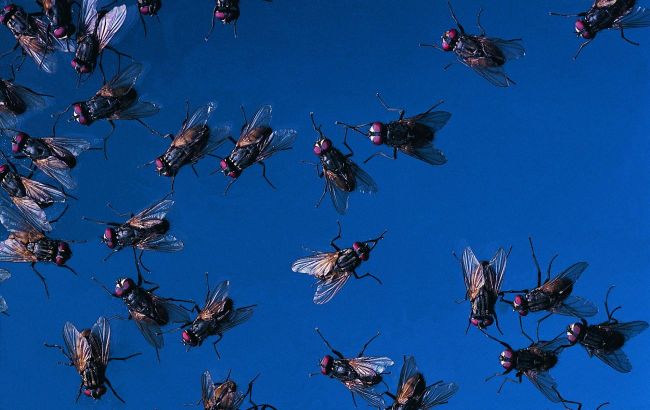Billions of flies falling from sky - What's behind this strange US operation in Mexico?
 Why the US plans to drop billions of flies on Mexico (photo: Getty Images)
Why the US plans to drop billions of flies on Mexico (photo: Getty Images)
The US government is preparing a plan that sounds like the plot of a horror movie. They intend to breed billions of flies and drop them from airplanes over Mexico and southern Texas. Why are they doing this, and what could be the consequences? Here's why the US plans to drop billions of flies from planes over Mexico, as reported by The Guardian.
How flies can save nature, animals, and industry
This unusual strategy aims to combat the larvae of flesh-eating flies that threaten the meat industry, wildlife, and even pets. But don't be alarmed—this bizarre science has already proven effective.
"It's an exceptionally good technology," says Edwin Burgess, an assistant professor at the University of Florida who studies parasites.
The target pest is the larva of the New World screwworm fly, which—unlike most maggots—feeds on live tissue instead of decaying flesh. That is why it is an exceptionally dangerous threat.
The US Department of Agriculture (USDA) plans to mass-breed and release adult male flies into the wild after sterilizing them with radiation.
In nature, these sterile males mate with wild females, but the eggs laid remain unfertilized and don't hatch. This leads to a decrease in larvae and, over time, the eradication of the pest population.
This method is considered more effective and environmentally friendly than widespread pesticide spraying. It is how the US and other countries north of Panama eradicated the same pest decades ago.
Fly factory
For decades, a factory in Panama kept the flies contained. However, at the end of last year, the screwworm fly reappeared in southern Mexico. It caused concerns and the need to restart the program.
From 1962 to 1975, over 94 billion sterile flies were bred and released in the US and Mexico to eradicate the pest.
A key advantage is that New World screwworm females mate only once during their one-week adult lifespan, giving biologists a crucial edge.
New factories and millions of flies
The USDA plans to launch a new screwworm fly production facility in southern Mexico by July 2026. A distribution center will also open in southern Texas by the end of this year to import and release flies from Panama as needed.
The Panamanian factory can currently produce up to 117 million flies per week, but the USDA aims to scale up to at least 400 million per week. The plan includes spending $8.5 million for production in Texas and $21 million to repurpose a plant in southern Mexico.
Why this mission matters
The New World screwworm is a serious threat to the meat industry. Females lay their eggs in animals' wounds or even in exposed mucus, causing devastating effects.
"A thousand-pound bovine can be dead from this in two weeks," warns Michael Bailey, president-elect of the American Veterinary Medicine Association.
Infection causes extreme pain for animals, and former rancher Don Hineman recalls, "It smelled nasty. Like rotting meat."
There is also a risk to humans. These flies can lay eggs in the wounds of any warm-blooded animal, including people.
Due to concerns about the fly's potential migration northward, the US temporarily closed its southern border in May to imports of live cattle, horses, and bison.
How safe is it?
Breeding a massive colony of flies is relatively straightforward, but requires strict control to prevent fertile adults from escaping.
Additionally, dropping flies from aircraft can be dangerous: last month, a plane releasing sterile flies crashed near the Mexico-Guatemala border, killing three people.
The method of aerial release has remained largely unchanged since the 1950s, when scientists used to drop flies in paper cups through special chutes. Later, machines known as "whiz packers" were used to load them into boxes.
Edwin Burgess calls the development of sterile fly breeding and distribution one of the USDA's "crowning achievements."
Some officials now argue that after the pest is eradicated again, the new factories should not be shut down.
As Burgess said, "Something we think we have complete control over – and we have declared a triumph and victory over – can always rear its ugly head again."

